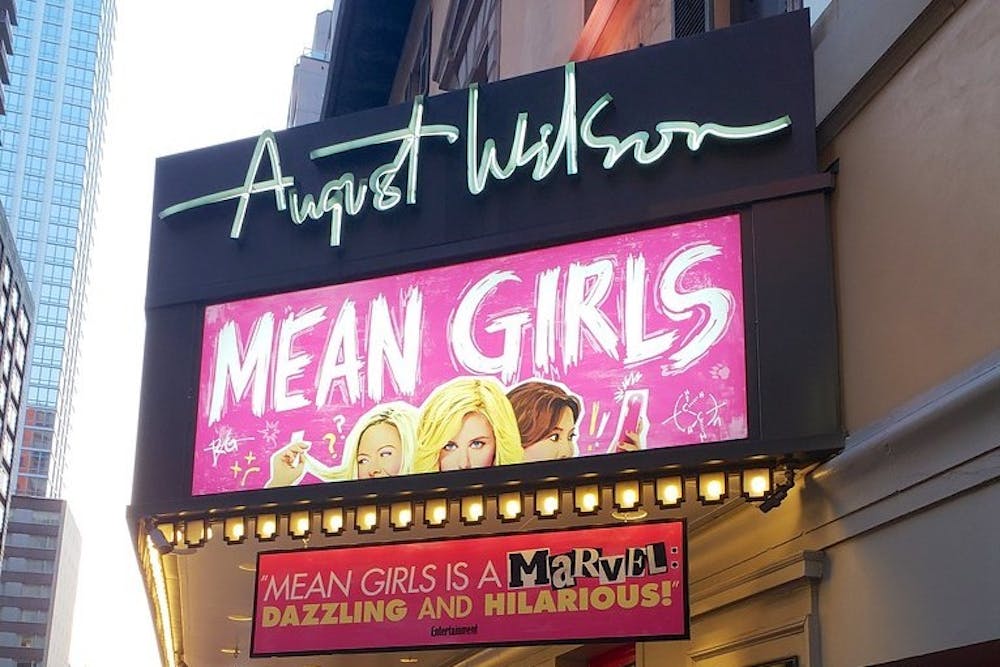A decade after the teen comedy's initial release in 2004, Mean Girls became a cult classic. Undying classic quotes such as “On Wednesdays, we wear pink,” “You go, Glen Coco!” “You can’t sit with us,” and “She doesn’t even go here!” are just a minor indication of how important Mean Girls is to modern culture. The film marked the debut of actress Amanda Seyfried, affirmed Lindsay Lohan as the teen icon that she is, and became many young people's first introduction to comedians Tina Fey and Amy Poehler. It would be very hard to deny just how iconic Mean Girls is and to not be surprised at its subsequent press—including a direct–to–TV sequel, a musical adaptation, and now, a film adaptation of the musical.
The levels of media that Mean Girls has gone through are innumerable. It began as the iconic film which grabbed the hearts of young women everywhere, before getting its sequel, Mean Girls 2—not a particularly inspired name, nor a particularly inspired movie. However, the misshapen follow–up to the iconic movie was not the end of Mean Girls—in October 2016, it was announced that the original film was to be adapted into a musical.
Fey would pen the book, or script, of the musical with music and lyrics being supplied by Jeff Richmond and Nell Benjamin, respectively. The adaptation garnered a whopping 12 nominations at the Tony Awards across all of the categories, including Best Musical, Best Leading Actress in a Musical, and Best Original Score. Fey herself got a nomination for Best Book. Despite this shocking number of nominations, Mean Girls walked away with no wins.
Yet, as Tina Fey announced on Jan. 23 of this year, this was far from the end of the Mean Girls spin–offs. The musical is now in the process of being adapted into a movie. That’s right: the movie that became a musical is now becoming a movie again.
On one hand, scoffing at this choice is a little unmerited. Filming musicals or making them into movies themselves has become a more common practice, and this is a turn for the better. Insisting that Broadway productions not be filmed is often elitist because it fails to recognize just how ridiculous the cost of a Broadway ticket and perhaps a flight to New York is. With the rising prevalence of the filmed show, the Fox Live! adaptation, or the newly created movie musical, these productions should be further encouraged. Of particular note are the upcoming adaptations of West Side Story starring Ansel Elgort and the film version of In the Heights, two incredibly welcome films that show a return to the movie musical and may mark a renaissance of the genre.
But Mean Girls is a little different. While the musical was nominated for an astounding number of Tonys, it's hard to see it as anything but a desperate cash–grab. Banking on the original film’s cult following, then turning it into a slightly different form of media is an incredibly obvious choice from a showrunner’s perspective, but feels particularly cheap—there’s a built–in audience without the show having to do any work.
To be fair, Fey is not the first person to adapt a popular movie or television show into a musical on Broadway in 2018 alone—Spongebob Squarepants and Frozen were among other adaptations, the former of which received 12 Tony nominations, just like Mean Girls. It makes sense to choose a film or TV show that already has a large following before making it a musical, since it brings a guaranteed audience and appeals to younger groups. Still, if the 2018 Tonys were any indication, these awards still prefer more earnestly crafted work to highly commercialized adaptations of otherwise loved media—Spongebob only received one win, Mean Girls received none, and the musical adaptation of the relatively unknown Israeli movie The Band’s Visit swept instead.
Besides the problem with the Mean Girls musical itself, the movie adaptation, like so many movie–musicals, may not pay credit to its original cast. Since the musical is still running on Broadway and has just recently announced that it recouped its original cost, it would make the most sense to simply film the current cast and release that as a film. This technique has been employed for the relatively–successful Newsies film, among others. This way, the stage actors get to have their performances preserved.
Instead, non–stage performers—and occasionally non–singers, like Idris Elba in Cats—often get cast in roles that are primarily about singing, to varying success. This also overwrites or ignores the talents of these stage performers, focusing on marketability and name–recognition instead of the natural talent of the original performers. While Fey hasn’t confirmed if the stage actors are going to be in the film adaptation, it wouldn't be a surprise if they recast the entire thing.
Really, all that Mean Girls’s upcoming movie musical adaptation shows us is that original work is truly scarce. Fey is clearly squeezing as much money as she can out of an incredibly famous piece of content until the well runs dry, despite the fact that its main audience—our age range—has largely outgrown it. The cycle of media rehashing the same old, well–loved stuff is only showing its head once again, though it seems unlikely that Mean Girls’ movie musical is even going to make a splash.







